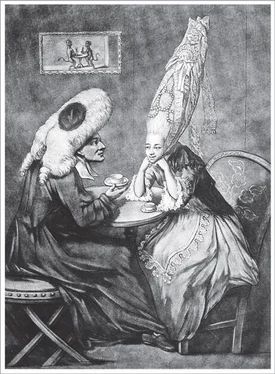Bill Bryson - At Home
Здесь есть возможность читать онлайн «Bill Bryson - At Home» весь текст электронной книги совершенно бесплатно (целиком полную версию без сокращений). В некоторых случаях можно слушать аудио, скачать через торрент в формате fb2 и присутствует краткое содержание. Жанр: Старинная литература, на английском языке. Описание произведения, (предисловие) а так же отзывы посетителей доступны на портале библиотеки ЛибКат.
- Название:At Home
- Автор:
- Жанр:
- Год:неизвестен
- ISBN:нет данных
- Рейтинг книги:4 / 5. Голосов: 1
-
Избранное:Добавить в избранное
- Отзывы:
-
Ваша оценка:
- 80
- 1
- 2
- 3
- 4
- 5
At Home: краткое содержание, описание и аннотация
Предлагаем к чтению аннотацию, описание, краткое содержание или предисловие (зависит от того, что написал сам автор книги «At Home»). Если вы не нашли необходимую информацию о книге — напишите в комментариях, мы постараемся отыскать её.
At Home — читать онлайн бесплатно полную книгу (весь текст) целиком
Ниже представлен текст книги, разбитый по страницам. Система сохранения места последней прочитанной страницы, позволяет с удобством читать онлайн бесплатно книгу «At Home», без необходимости каждый раз заново искать на чём Вы остановились. Поставьте закладку, и сможете в любой момент перейти на страницу, на которой закончили чтение.
Интервал:
Закладка:
In thirty-two years at Great Cheyne Row, the Carlyles employed thirty-four maids—and the Carlyles were comparatively easy people to work for since they had no children and were reasonably patient and compassionate. But it was nearly impossible to find employees who could meet their exacting standards. Sometimes the servants failed spectacularly, as when Mrs. Carlyle came home one afternoon in 1843 to find her housekeeper dead drunk on the kitchen floor, “with a chair upset beside her and in the midst of a perfect chaos of dirty dishes and fragments of broken crockery.” On another occasion Mrs. Carlyle learned to her horror that a maid had given birth to an illegitimate child in the downstairs parlor while she was away. She was particularly exercised that the woman had used “all my fine napkins.” Most maids, however, left or were asked to leave because they declined to work as hard as the Carlyles expected them to.
The inevitable fact was that servants, being only human, rarely possessed the acuity, skills, endurance, and patience necessary to satisfy the ceaseless whims of employers. Anyone in command of the many talents necessary to be an outstanding servant was unlikely to want to be one.
The greatest vulnerability of servants was powerlessness. They could be blamed for almost anything. There have never been more convenient scapegoats, as the Carlyles themselves discovered in a famous incident on the evening of March 6, 1835. At that time, the Carlyles had only recently moved to London from their native Scotland, with the hope that Thomas would there fashion a career as a writer. He was thirty-eight years old and had already established a slight reputation—a very slight one, it has to be said—with a work of dense personal philosophy called Sartor Resartus , but he had yet to write his magnum opus. He intended to correct that deficiency with a multivolume history of the French Revolution. In the winter of 1835, after much exhausting labor, he had finished the first volume and given the manuscript to his friend and mentor John Stuart Mill for his valued opinion.
This was the background against which Mill turned up at Carlyle’s door on that chilly evening in early March, looking ashen. Behind him, waiting in a carriage, was Harriet Taylor, Mill’s mistress. Taylor was the wife of a businessman of such relaxed disposition that he essentially shared her with Mill, and even provided them with a cottage west of London, at Walton-on-Thames, where they could go to tryst. I’ll let Carlyle himself take up the story at this point:
Mill’s rap was heard at the door: he entered pale, unable to speak; gasped out to my wife to go down and speak with Mrs Taylor; and came forward (led by my hand, and astonished looks) the very picture of desperation. After various inarticulate and articulate utterances to merely the same effect, he informs me that my First Volume (left out by him in too careless a manner, after or while reading it) was, except for four or five bits of leaves, irrevocably ANNIHILATED! I remember and still can remember less of it than anything I ever wrote with such toil: it is gone, the whole world and myself backed by it could not bring that back: nay the old spirit too is fled.… It is gone, and will not return.
A servant, Mill explained, had seen it lying by the fender and had used it to light a fire. Now, you don’t have to consider the matter too carefully to realize that this explanation has some problems. First, a handwritten manuscript, however disposed, does not look inconsequential; any maid who worked in the Mill household would be used to seeing manuscripts and could not fail to have had impressed upon her their importance and value. In any case, it hardly takes an entire manuscript to light a fire. Burning the whole would require patiently feeding the pages in a few at a time—the action you would take if you wished to be rid of the manuscript, but not if all you wanted was to start a blaze. In short, it is impossible to conceive circumstances in which a maid, however dim and deficient, could accidentally but plausibly destroy such a piece of work in its entirety.
An alternative possibility was that Mill himself had burned the manuscript in a fit of jealousy or anger. Mill was an authority on the French Revolution and had told Carlyle that he had it in mind to write a book on the subject himself one day, so jealousy was certainly a possible motive. Also Mill at this time was going through a personal crisis: Mrs. Taylor had just insisted to him that she would not leave her husband but wished to maintain their peculiar tripartite relationship. So we might allow that the balance of Mill’s mind was disturbed. Still, such a wanton and destructive act simply didn’t fit with either Mill’s previous good character or his seemingly genuine horror and pain over the loss. The only possibility that remained, then, was that Mrs. Taylor, whom the staid Carlyles didn’t much like, was in some unspecified way responsible. Mill had told them that he had read large parts of the work to her at Walton, so the suspicion arose that she had been in custody of the manuscript at the time of the disaster and somehow was at the dark, unhappy root of the matter.
The one thing the Carlyles could not do was question any of this, even in a despairing, rhetorical sort of way. The rules of decorum decreed that Carlyle had to accept the facts as Mill delivered them and was not permitted any supplementary questions about how this terrible, amazing, inexplicable catastrophe had happened. An unspecified servant had carelessly destroyed Carlyle’s manuscript in its entirety, and that was the end of it.
Carlyle had no option but to sit down and recompose the book as best he could—a task made all the more challenging by the fact that he no longer had notes to call on, for it had been his bizarre and patently misguided practice to burn his notes as he finished each chapter, as a kind of celebration of work done. Mill insisted on giving Carlyle compensation of £100, enough to live on for a year while he redid the book, but their friendship, not surprisingly, never really recovered. Three weeks later, in a letter to his brother, Carlyle complained that Mill had not even had the courtesy to let them sorrow in private but had “remained injudiciously enough to almost midnight, and my poor Dame and I had to sit talking of indifferent matters; and could not till then get our lament freely uttered.”
It is impossible to know how the reworked version differed from the original. What can be said is that the volume we now have is one of the most unreadable books ever to attract the esteem of its age. It is written entirely in the present tense in strange, overwrought language that seems always to be tiptoeing around on the brink of incoherence. Here is Carlyle discussing the man behind the guillotine:
And worthy Doctor Guillotin , whom we hoped to behold one other time? If not here, the Doctor should be here, and we see him with the eye of prophecy: for indeed the Parisian Deputies are all a little late. Singular Guillotin, respectable practitioner; doomed by a satiric destiny to the strangest immortal glory that ever kept obscure mortal from the resting-place, the bosom of oblivion!… Unfortunate doctor! For two-and-twenty years, unguillotined, shall hear nothing but guillotine; then dying, shall through long centuries wander, as it were, a disconsolate ghost, on the wrong side of Styx and Lethe; his name like to outlive Caesar’s.
Readers had never encountered such perky intimacy in a book and found it thrilling. Dickens claimed to have read the work five hundred times and credited it as the inspiration behind A Tale of Two Cities . Oscar Wilde venerated Carlyle. “He made history a song for the first time in our language,” he wrote. “He was our English Tacitus.” For half a century, Carlyle was, for literary folk, a god.
Читать дальшеИнтервал:
Закладка:
Похожие книги на «At Home»
Представляем Вашему вниманию похожие книги на «At Home» списком для выбора. Мы отобрали схожую по названию и смыслу литературу в надежде предоставить читателям больше вариантов отыскать новые, интересные, ещё непрочитанные произведения.
Обсуждение, отзывы о книге «At Home» и просто собственные мнения читателей. Оставьте ваши комментарии, напишите, что Вы думаете о произведении, его смысле или главных героях. Укажите что конкретно понравилось, а что нет, и почему Вы так считаете.












